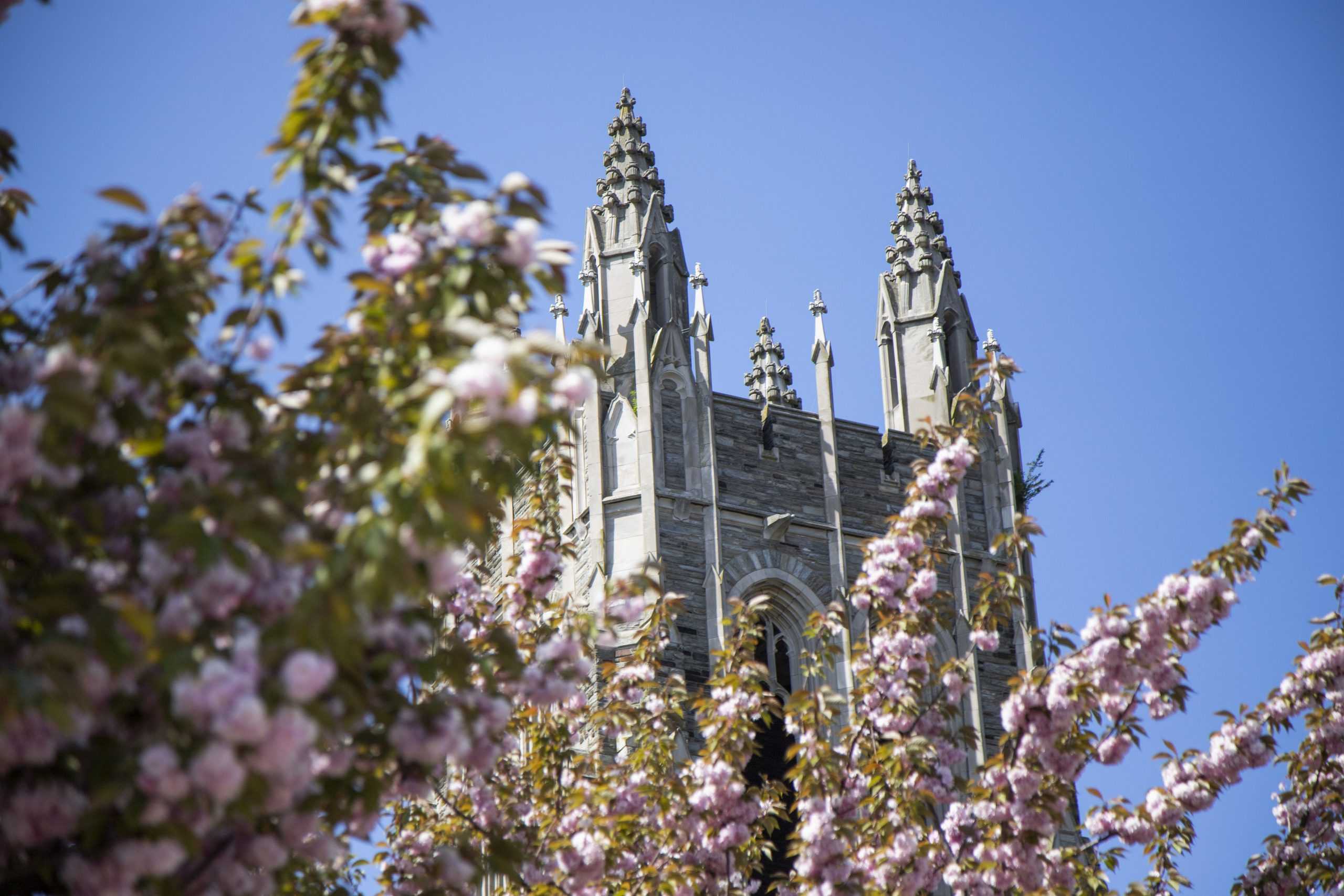St. Joe’s will be implementing salary reductions, furloughs and changes to retirement contributions due to the coronavirus pandemic’s financial impact on the university, according to an announcement to faculty and staff on May 28 from University President Mark C. Reed, Ed.D.
Reed said the abrupt end to residential living on campus resulted in reimbursements to students of more than $9,000,000. That, coupled with additional unrealized revenues due to the cancelation of events, restrictions on all campus programs and slowdowns in fundraising activity, have significantly impacted the St. Joe’s finances. To compensate, faculty and staff annual pay will be reduced.
“Employees with annualized earnings below $30,000 will have a 0% reduction; between $30,000 and $50,000, a 2% reduction; and above $50,000, a 5% reduction with the exception of executive leaders and other highly compensated positions having reductions between 7% and 10%,” Reed wrote in the announcement. “My salary will be reduced by 15%.”
Additionally, St. Joe’s maximum retirement savings plan contributions will be reduced for the year from 10% to 5%. Since the vast majority of faculty fall within the 5% reduction of salary, this–together with the reduction of the maximum contributions–leads to a 10% cut in total compensation. A limited number of positions will be furloughed for varying periods of time during the summer. During the furlough period, St. Joe’s will cover the full cost of health plans and suspend all individual contributions for furloughed employees.
“We were guided by a desire to preserve as many jobs as possible,” Reed said. “Every Saint Joseph’s faculty and staff member is valued. These actions are intended to be temporary, with the goal to restore reductions as soon as we are able.”
Also, even though faculty and staff were urged to continue working and teaching from home and avoid trips to campus whenever possible, no refunds for parking to faculty and staff will be granted as they were with students for the remainder of the spring semester, according to Gail Benner, director of PR and Media.
“The University will not be issuing refunds for parking to faculty and staff,” Benner wrote in an email to The Hawk. “The campus remains open and employees have daily access to spaces when needed to facilitate their remote work or teaching.”
Forewarning about his anticipation of further budget constraints, Reed noted that several surveys strongly suggest that colleges and universities could see a 10-20% reduction in total enrollment due to the disruptions of the coronavirus pandemic.
Additionally, according to an announcement sent to faculty and staff on May 29 by Zenobia Hargust, chief human resources officer, the effective date for impacted staff and administrators will be Monday, June 1, 2020. The temporary salary reductions will then be visible in The Nest, via the employee dashboard, on Friday, June 12, 2020. The effective date for tenure-track and visiting faculty will be Sunday, August 16, 2020, as per their yearly appointment cycles. Faculty appointment letters will be issued on Monday, June 15, 2020.
In addition to providing plans for budgets moving forward, Reed also shared contingency plans for the fall semester.
Reed said the university is looking to modify the academic calendar to complete on-ground instruction by Thanksgiving and to complete the remainder of classes and the final exam period virtually.
“In order to support this calendar change, we will need to eliminate the week-long fall break in October,” Reed said. “This should not be a challenge as this was the first-year [sic] we were implementing the break in this format. The Office of the Provost will formally communicate the changes to the fall academic calendar with the campus community in the coming days.”
Reed said the plan seeks to eliminate the possibility of students traveling widely for the holiday and then returning to campus at a time of the year when seasonal illnesses are prevalent and there is potential for a second wave of the coronavirus.
Additional university plans for transitioning from the “red phase” to “yellow phase” of Pennsylvania’s reopening process were explained in an announcement to faculty and staff from Cary Anderson, Ed.D., associate provost and vice president of Student Life, on May 21.
“There may be some critical business functions that expand their on-campus presence including IT, facilities and scientific research laboratories,” Anderson said. “These departments and functions will need to adhere to all public health guidance including physical distancing, use of masks as recommended, and cleaning protocols.”
Gabrielle Lacherza, PR and communications specialist at St. Joe’s, said the university is working quickly to secure the necessary supplies and to establish policies and procedures for reopening.“This is a constantly evolving situation, and we continue to track government and public health guidance closely,”
Lacherza said. “There are a number of measures that all universities must take in order to safeguard students, employees and guests.”


















































